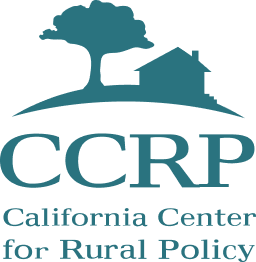The workload of the public health workforce increased exponentially during the pandemic, a period characterized by extreme levels of uncertainty and stress throughout society (Dent & Chen, 2023). According to the PHWINS, many public health employees cited stress and burnout as central to considering leaving their jobs. Learn more about burnout and the importance of mental health care in the workforce by exploring the resources below.
Resource Title & Link | Resource Type | Resource Description |
Understanding and Preventing Burnout among Public Health Workers: Guidance for Public Health Leaders (CDC, NIOSH, 2023) | Online Course | The Center for Disease Control, National Institute for Occupational Safety and Health (NIOSH) published an online course for supervisors and managers in public health to help them reduce burnout in their employees and better structure their workplace. |
It’s More Than Burnout: Moral Injury In The Public Health Workforce (Dent & Chen, 2023) | Webpage | A webpage published by the de Beaumont Foundation that describes burnout and moral injury in the context of the public health workforce. Offers some statistics and some possible solution recommendations for managers and spervisors in the public health workforce. |
The Role of Minority Stress in Health Disparities (Boskey, 2020) | Webpage | This webpage defines Minority Stress, which is the stress derived from a minority status. Click on the webpage for more details. |
Mental Health First Aid (National Council for Mental Wellbeing, n.d.) | Webpage | This webpage has links and resources to recieving training in mental health first-aid, as well as a newsletter and other resources to increase education and awareness of mental health first-aid. Mental Health First Aid (MHFA) can teach public health staff to recognize and respond to coworkers who may be experiencing a mental health challenge. MHFA trainings can help departments integrate mental health and substance use support into their workforce culture. |
Mental Health First Aid (MHFA) Training Program (NAMI, n.d.) | Webpage | This webpage has details about an adult and youth mental health first-aid training session offered by the National Alliance on Mental Health (NAMI) Urban LA. The course is held online, and is available for individuals or companies. |
Conflict Management: Definition, Strategies, and Styles (Coursera, 2024) | Webpage | This webpage defines conflict management, and provides five different conflict management styles. It also goes on to provide strategies and tips for effective communication and conflict management. |
Mental Health First Aid Guidelines (Mental Health First Aid International, n.d.) | Toolkit/Guide | This toolkit has evidence-based guidlines for providing mental health first-aid that are specific for several mental health problems and crises, as well as for people of certain backgrounds and ethnicities. |
Experiences of minoritized, marginalized physicians in U.S. during COVID-19 (AMA, n.d.) | Report | This report, published by the American Medical Association (AMA), surveyed physicians to asked how the COVID-19 pandemic affected them. The results from the report details the experiences of racially and ethnically marginalized physicians, and provides important data in the effort to increase health equity. |
Addressing Health Worker Burnout (U.S. Surgeon General's Office, 2022) | Report | This advisory was published by the Surgeon General to address burnout in the public health field. It provides general reccomendations to change the culture and structures around public health care in order to better serve healthcare providers, and therefore patients. The advisory also provides helpful resources connected to the topics of transforming cultures, reducing administrative burdens, preventing suicide and moral injury, supporting health workers, and ensuring health care safety and preventing violence. |
National Framework for Addressing Burnout and Moral Injury in the Health and Public Safety Workforce (Workplace Change Collaborative, 2023) | Report | The Health Resources and Services Administration (HRSA) funded Workforce Change Collaborative (WCC) was tasked under the aware to develop a "national framework that supports the rapid deployment of evidence informed or evidence-based strategies to reduce and address burnout, suicide, mental health conditions, and substance use disorders and enhance resiliency". This report focuses the evidence-base towards the public health and safety workforce. |
